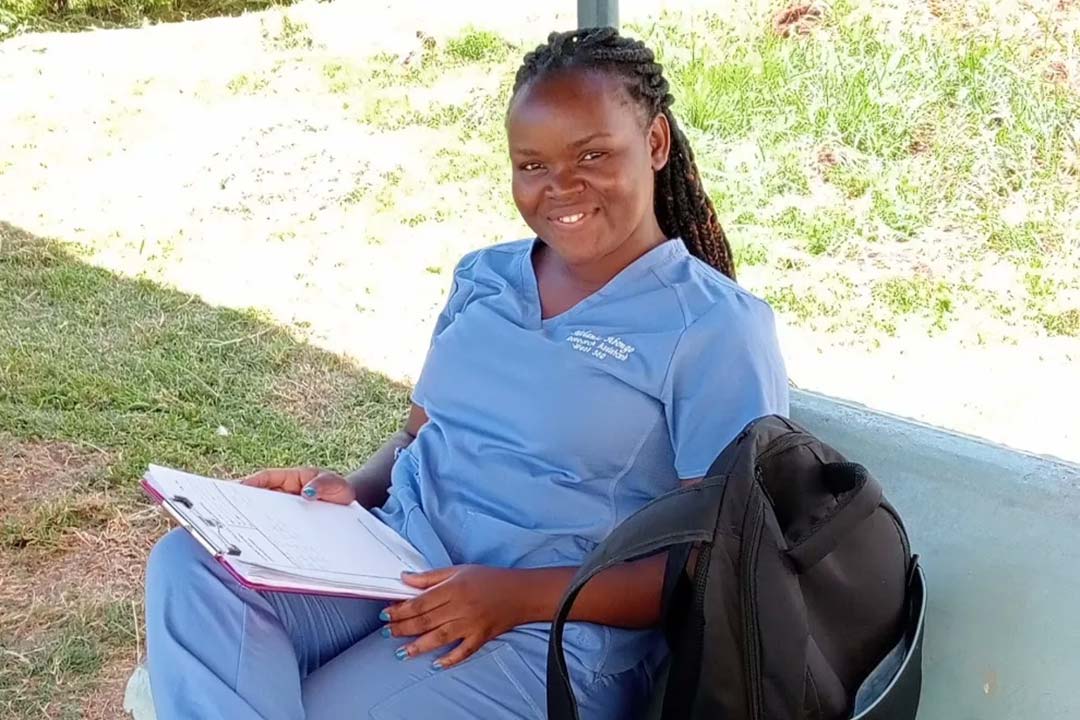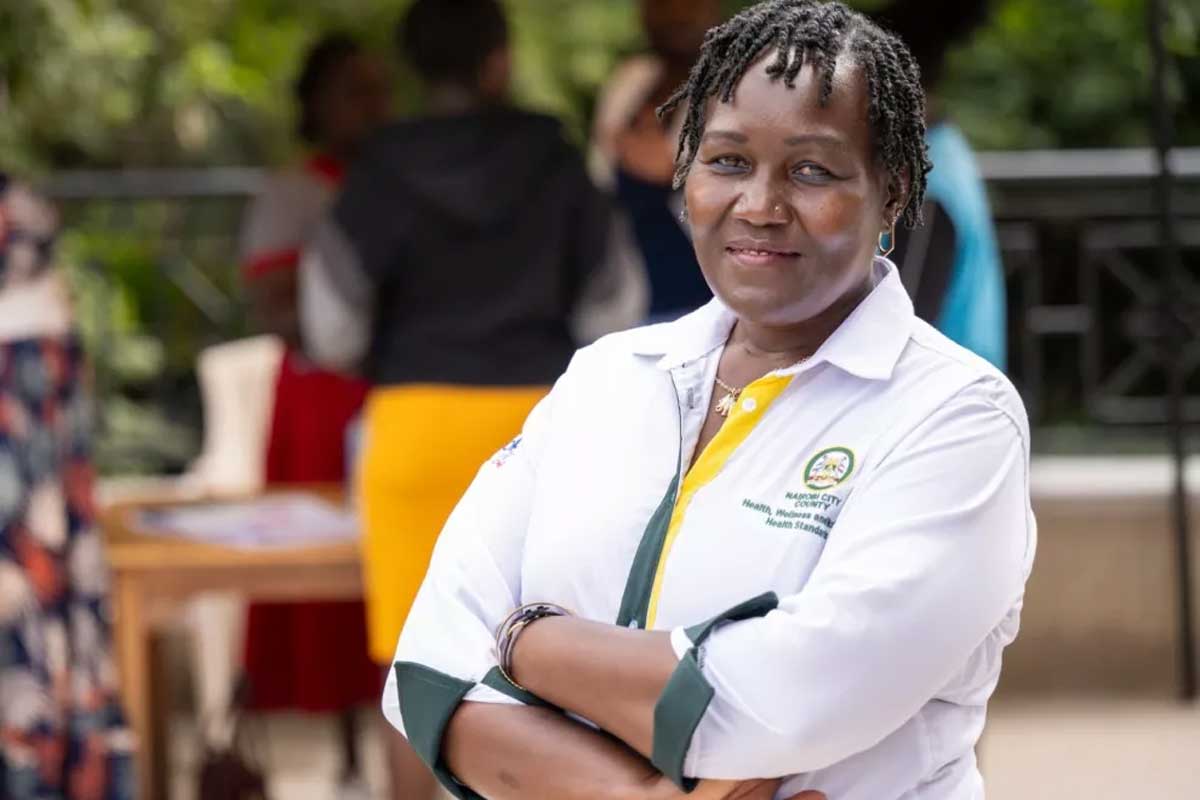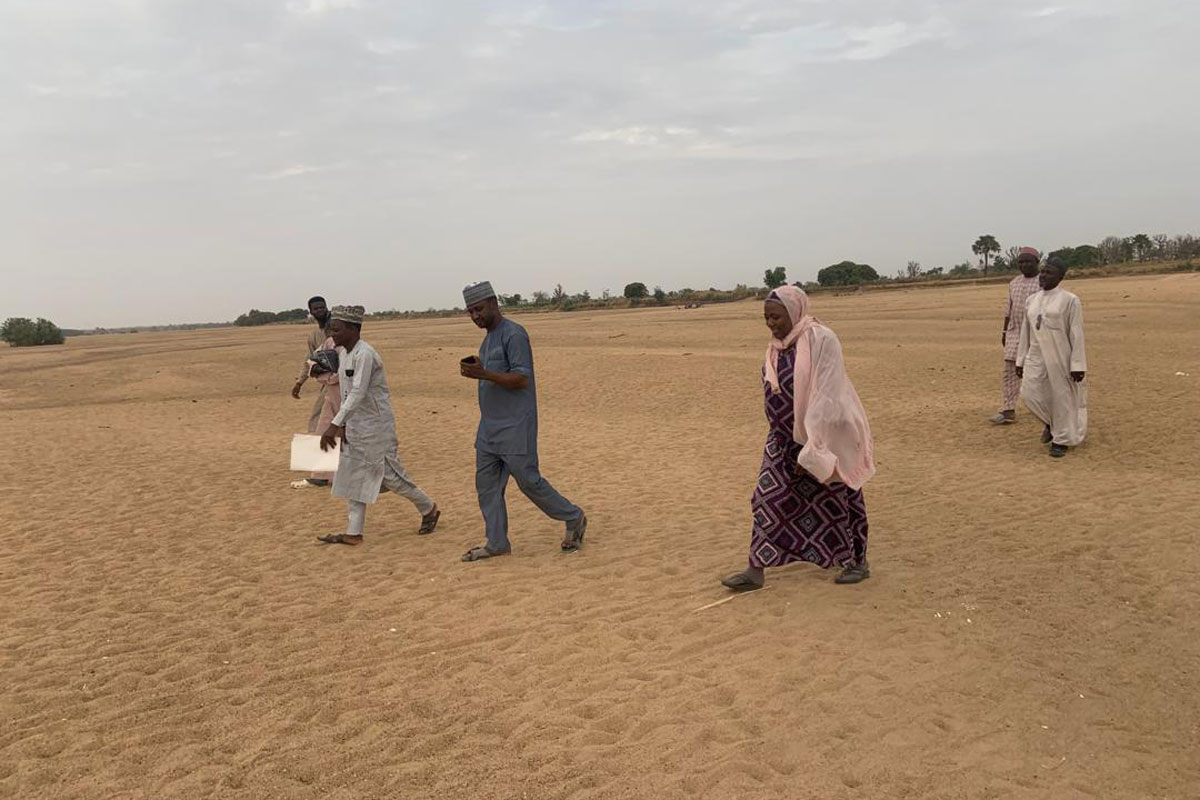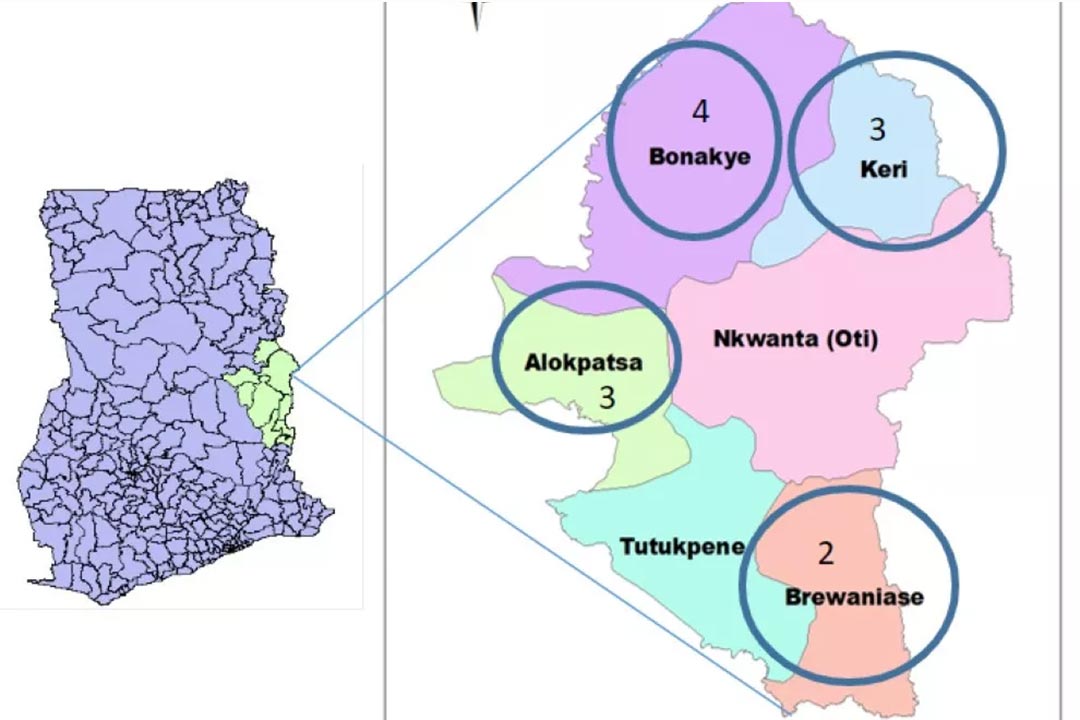Making a difference in Kenya: Research nurse Melanie Abongo
Discover how a Kenyan nurse's journey from a lakeside hospital to global research conferences fueled her passion for healthcare.
- 22 May 2024
- 5 min read
- by Sabin Vaccine Institute

I sat beside Mama for close to 12 hours in the waiting bay of Homa Bay Level 5 Teaching and Referral Hospital, then known as the Homa Bay Hospital, on the edge of Lake Victoria in Kenya. As it shifted from very hot daytime to very cold night, I was barely covered by the shawl my mother always carried in her kiondo, trying to shield my entire body from the famous lakeside malaria mosquitoes.
It was then that I swore to make a difference in healthcare. I had to be a doctor, so that I could treat women like my mother, who had sustained burns to her hands and legs, had been given Panadol, and was told to wait for the doctor. At every attempt to get another Panadol for the pain during the long wait, my mother was told, "Doctors are few, Mama. You have to wait for him to finish, then he will attend to you. If not, go to private hospital." I swore to add to the number of doctors in the country so that I could make a difference.
Years later, I graduated from high school, and my dream lived on. I was four points short of meeting the minimum requirements to become a doctor in the university. My next choice was to be a nurse, and I was admitted to the University of Nairobi to study nursing.
Finding My Passion
In my third year in the nursing program, a call for research proposals was posted on the school's announcement board. I decided to attempt it, especially because a classmate had just died from what was suspected to be a backstreet abortion. It provided the perfect research question. My concept was accepted, and together with mentors from the school, we prepared a proposal, and this study was later funded by Lugina African Midwives Research Network (LAMRN). It became the study, "Where do adolescent girls seek abortion services and why? A descriptive study, Nairobi Count, Kenya." I presented the research on a poster at the LAMRN 2015 conference, and I was sure what my nursing practice would be: research.

Melanie presenting at the VARN 2023 Conference in Bangkok Thailand
I graduated in five years with a Bachelor of Science in Nursing, then earned a Master of Public Health degree (Monitoring and Evaluation). While it has not been easy, I have strived to make a difference with my passion. I love research and being part of a solution.
I worked as a clinical nurse and kept working on research studies. During COVID-19, most marginalized communities—including transgender women, female and male sex workers, and men having sex with men— could not access health and medical services, and therefore could not access the COVID-19 vaccine. I'm proud that I was able to write two proposals that won funding from the International AIDS Society. The results and recommendations of this study were presented at the Sabin Vaccine Institute's Vaccination Acceptance Research Network (VARN) 2023 conference in Bangkok, Thailand: "Prevalence and Challenges of Uptake of COVID-19 Vaccine Among the Key Population in Kenya."
Have you read?
Being a researcher has opened avenues and more academic aspirations. While working at Kenyatta National Hospital, I received a small grant that covered research expenses, enabling me to conduct a study that was accepted and presented at the Typhoid and Other Invasive Salmonelloses 13th International conference in Kigali, Rwanda last fall. The study was titled, "The current epidemiological trend of typhoid fever in Kenya: A case study of referral hospitals in Nairobi, Kenya."

Melanie at the 13th International Conference on Typhoid and Other Invasive Salmonelloses
As a study nurse or research assistant on projects, I occasionally seek permission to become involved with related studies that might be of interest to me interest or the principal investigators. As a result, I don't incur much cost in research. I have published two manuscripts in peer-reviewed journals as a principal investigator: "Behaviors and sexual patterns leading to HIV risk among young transgender women in coastal Kenya: a qualitative study," and "Maternal factors associated with preterm births at Thika level 5, Kiambu County, Kenya."
I am also interested in vaccinology. The Human Papillomavirus (HPV) vaccine was promoted Kenya in 2022, with information around the HPV vaccine, contraception, and family-planning access among adolescents and youth circulated during the political season. Now it's all quiet. However, cervical cancer is one of the deadliest diseases for women in Kenya and sub-Saharan Africa, and I am interested in continuing the campaigns in order to expand outreach, especially with the right information. My interventional two- to three-year study proposes a structured output-oriented receiver-centered study that focusses on educating the community on cervical cancer and the HPV vaccine. The study will create information campaigns for girls in schools and for the community/parents that will target markets and bus stops. The output will ultimately measure how many more girls take up the HPV vaccine.
At times, I had to work more than three jobs simultaneously to sustain my family and myself in school. I have had to work as a night-shift clinical nurse and be a researcher during the day to work on studies and interact with senior researchers who then become my mentors in research. It is worth it, because it is my passion, and it helps me keep the promise I made all those years ago, next to my mother, waiting in line at the hospital, when I promised to make a difference.
Written by
Melanie Abongo
Website
This article was originally published by the Sabin Vaccine Insitute on 5 May 2024.








